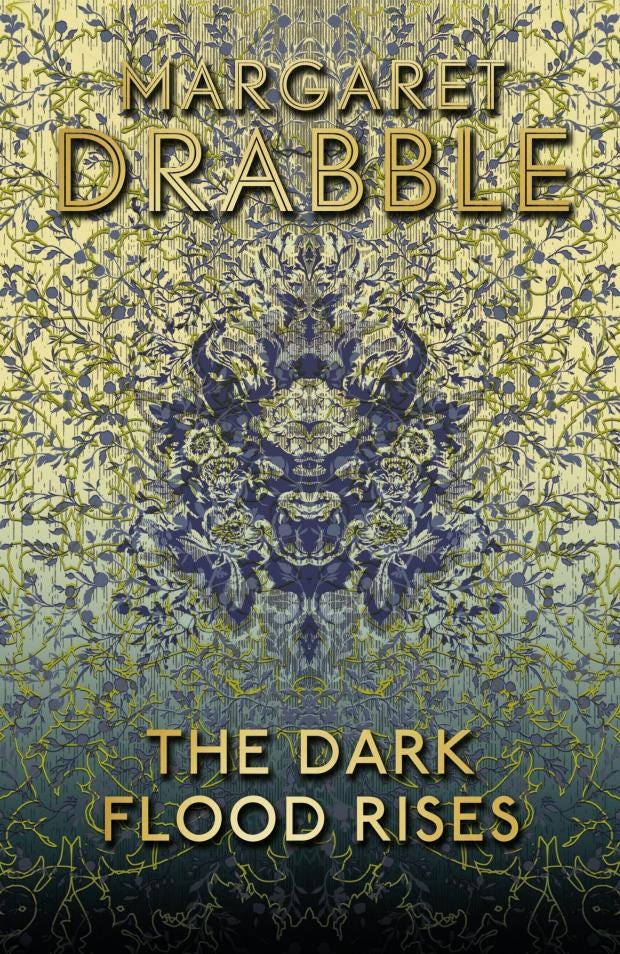
“We can all expect to live longer,” confirms Margaret Drabble towards the beginning of her new novel, The Dark Flood Rises, “but it’s recently been claimed that the majority of us can expect to spend the last six years of our prolonged lives suffering from a serious illness, in some form of pain and ill health.”
It’s enough to have you pre-booking your one-way ticket to Switzerland, but rather than becoming maudlin, Drabble’s septuagenarian heroine Francesca Stubbs – still independent and still working, driving round the country in her role as an inspector for the care homes that house those not much older than herself – is instead infuriated by this statistic. “Longevity has fucked up our pensions, our work-life balance, our health services, our housing, our happiness. It’s fucked up old age itself,” she fumes. In the face of this encroaching decrepitude – both ours and hers – if it wasn’t for Fran’s vibrant indignation, stoicism and courage – “old age itself is a theme for heroism” – The Dark Flood Rises would, I have to admit, make for pretty depressing reading.
It’s a novel in which nothing really happens. Fran stays at various Premier Inns (of which she’s a fan, especially their food) as she battles valiantly onward: “The end is nigh, but she’ll keep on trying”. In contrast to all this energy, her now bedridden ex-husband self-medicates and listens to Maria Callas in his comfortable Kensington mansion flat. In Cambridge, meanwhile, Fran’s friend Josephine has “domesticated fear,” meeting “Old Age halfway” by moving into Athene Grange, collegiate-style sheltered accommodation, while still in good health, where she runs adult education classes and enjoys a regular Thursday night tipple with one of her neighbours. At the same time, across London another is dying painfully of lung cancer, while further afield an ex-pat enjoys an apparently idyllic retirement on Lanzarote.
It may not be edge-of-your-seat stuff, but Drabble couldn’t have written about the indignities, pains and general “uselessness” of old age any better. She also cleverly conflates the deaths, or encroaching deaths, of her individual characters with various versions of the “end of times” in the wider world, from socio-political unrest – specifically in the form of asylum seekers en route to Europe – to looming environmental disasters – grumbling volcanoes beneath the ocean floor, and rising water levels on the floodplains of southern England.
In the course of their discussions of the subject of creativity in old age, Josephine’s literature class considers “the question of whether or not we can identify a phenomenon sometimes known as Late Style”. We’re not told what she and her students decide, but it’s worth turning to Edward Said’s thoughts on the matter. His argument – that we should think of artistic lateness “not as harmony and resolution but as intransigence, difficulty, and unresolved contradiction” – seems to allow the most helpful way of accessing Drabble’s witty and intelligent but ultimately uncomfortable, melancholic and rather doom-laden work. It’s not a particularly easy book to read, but it is brimming with relevance.
No comments:
Post a Comment